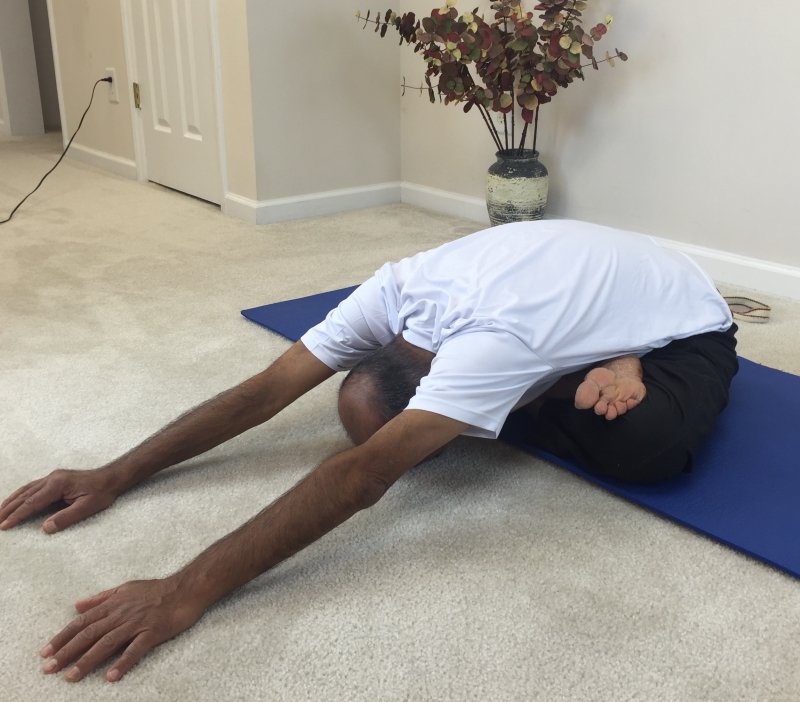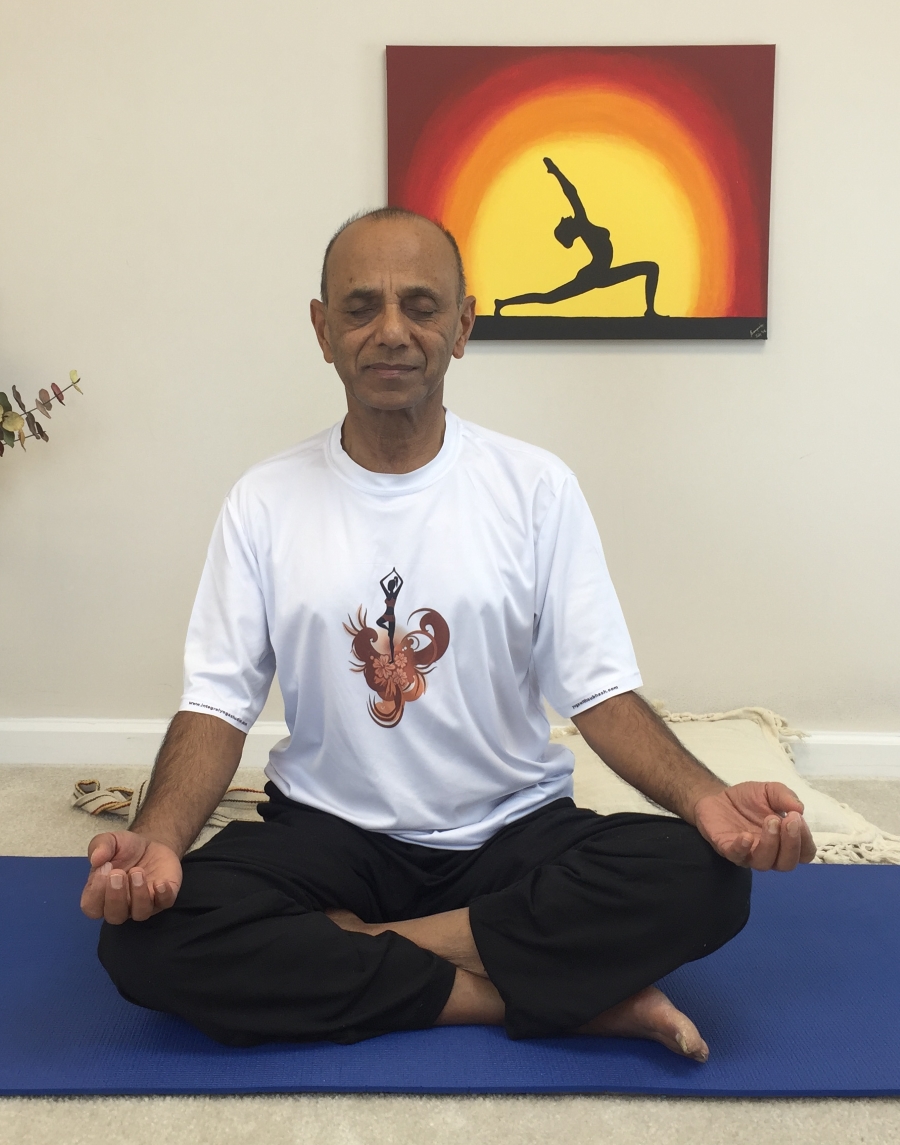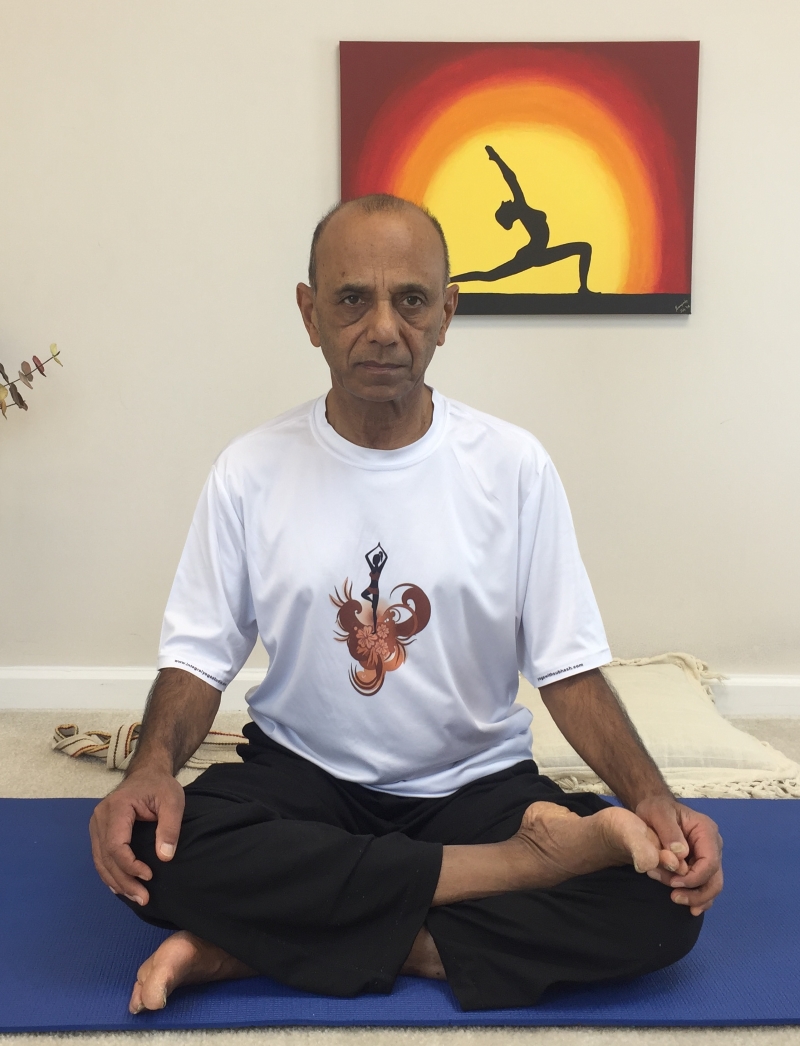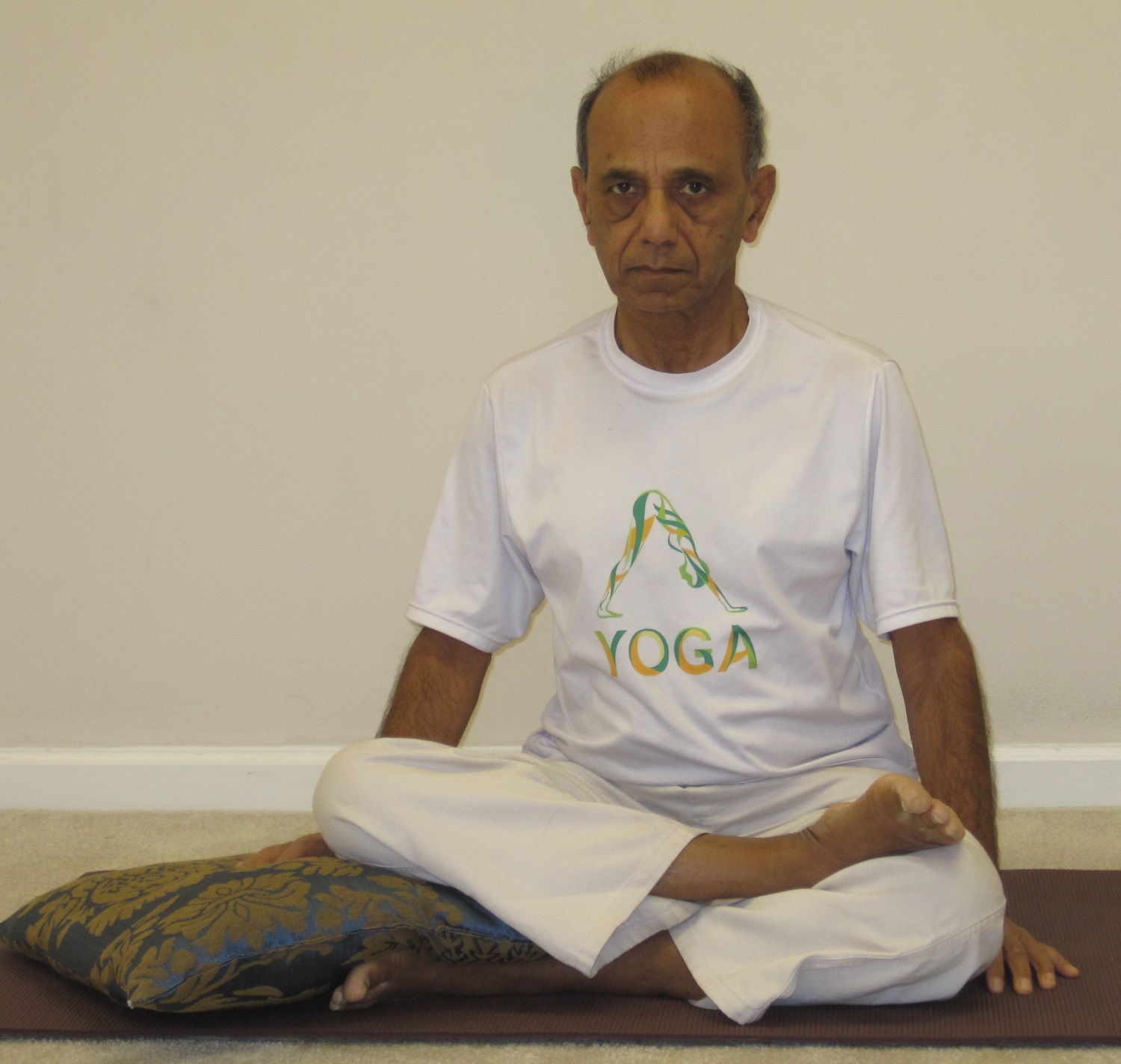
Agni Stambhasana (Firelog pose)
If you haven’t tried the pose before and you look at a picture of the pose, the Agni-stambhasana
Symbolically, fire is considered to be a cleansing agent. For example, to purify gold, one has to put it in intense heat to get rid of the impurities. The intensity of the agni-stambhasana similarly can help cleanse the body of the toxins deposited in various joints like the hips, knees, thighs and the ankles.
I hope you will enjoy practicing with the video.
Step-by-step

Sukhasana (Easy Pose)
- Sit in a simple cross-legged position (Sukhasana) on your mat. If needed, place a folded mat or a small cushion under your buttocks to make the sitting posture comfortable.
- Lift the right foot up with your right hand and place the foot on top of the left thigh. Carefully and slowly slide the foot up toward the knee until the right ankle is positioned on top of the left knee.
- Lift the right knee up slightly and carefully slide the left foot toward the right knee until the left ankle is positioned directly under the right knee.
-
If you are unable to come into this position, some of these optional modifications may be helpful:
- If you are unable to align the ankle with the opposite knee, you may need to slide the foot slightly back toward the groin area. Try to keep the foot as close to the knee as comfortable.
- If the top knee is unable to rest on top of the opposite foot, you may use a small folder blanket or a cushion between the foot and the knee to provide knee support.
- If there is gap between the knee and the floor, you may use a blanket under the knee for support. Essentially, you want to make sure that sitting in the final pose does not cause any pain or discomfort.
- If you are comfortable in the initial agni-stambha sitting position, you may like to deepen the stretch by placing the palms on the floor in front and walking the hands away from you, as far as comfortable. If you have enough flexibility in your hips and knees, you may be able to rest your forehead on the floor in front while still keeping the buttocks firmly on the ground.
- Stay in the final posture for about 5-6 breaths.
- When you want to come out of the pose, lift the head up and slowly walk your hands back.
- Sit in Sukhasana (cross-legged easy pose) for a couple of breaths.
- Now, switch the legs around and repeat the above steps.

Agni Stambhasana-1 (Firelog pose)
Benefits

Agni Stambhasana-2 (Firelog pose)
- Great pose for stretching the hips, thighs, knees, ankles and the groin area
- In the forward bending variation of the pose, the spine and the abdominal muscles are stretched
- Generates internal heat which is highly detoxifying
- Develops a sense of stability and being centered
Contraindications
- Avoid the pose if you have pain in the knees or hips
- Avoid forward bending variation in case of lower back pain
Recent Comments